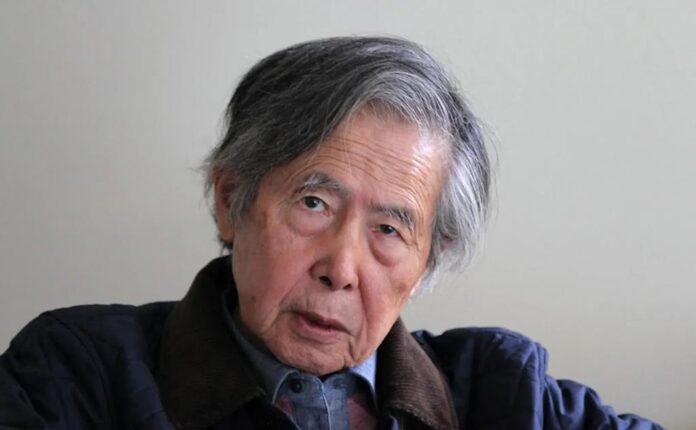On Sept. 12, Peruvian President Dina Boluarte granted ex-dictator Alberto Fujimori funeral honours typically reserved for a former president, leaving many Peruvian citizens outraged. This decision followed the Sept. 11 death of Fujimori, 86, who died after a long battle with tongue cancer. The announcement came from his lawyer, but was soon deleted and reposted by Fujimori’s daughter, Keiko Fujimori.
The Institute of Democracy and Human Rights of the Pontificia Universidad Católica del Perú (IDEHPUCP) rejected the honours bestowed on Fujimori, stating that “this government’s gesture is another step toward the demolition of democracy in Peru and it shows an alignment between those on top of the State with the legacy of authoritarianism, corruption, and violence left by the ‘Fujimorist’ regimen.” This isn’t the first time that the current government supported the former president as not long ago, Congress approved a law allowing Fujimori access to a lifelong pension despite his crimes against humanity.
Fujimori became president in 1990 when he won the election against Mario Vargas Llosa, with his campaign staunchly opposing Vargas Llosa’s radical economic proposal. However, a few weeks after he won, he instated what’s known as the “Fujishock,” using an economic plan similar to the one he opposed by Llosa’s, which sent the country into a necessary crisis that would deal with the hyperinflation in the long-term. This, combined with the capture of terrorist organization Sendero Luminoso leader Abimael Guzmán during Fujimori’s reign, are some of the reasons why certain Peruvians remember him with respect.
Nevertheless, Fujimori’s legacy was tarnished when he unconstitutionally shut down Congress in 1992. After prolonging his 10-year authoritarian administration filled with corruption and human rights violations, he fled to Japan in 2000 when leaked videotapes showed his then intelligence chief Vladimiro Montesinos bribing politicians. Fujimori later resigned his third presidency cycle via fax.
With a renewed desire for power, Fujimori flew to Chile in 2005, where he was captured and subsequently arrested. Fujimori had previously been sentenced to six years for abuse of power, and received an additional sentence of 25 years in prison in 2009 for the 25 murders committed by a police squad in La Cantuta and Barrios Altos as well as “the kidnappings of a businessman and a journalist.”
The Peruvian people remained divided, as a large portion of the population was still loyal to “Fujimorismo.” Keiko Fujimori, Alberto Fujimori’s daughter, first lady during his reign, and new leader of the Fuerza Popular party, nearly rose to power in 2011, 2016, and 2021, showing that its devoted supporters persist to this day.
In 2017, violent protests spiked when Fujimori was issued a pardon on humanitarian grounds. This decision was revoked, and he was sent back to prison in 2019. It wasn’t until 2023 that he was released from jail, despite criticism from the Inter-American Court of Human Rights. This same year, his daughter came forward to state his intention to run for the 2026 elections. This, of course, never happened, as his death came coincidentally on the same date, three years after Guzmán’s death.
Susana Baca, renowned Peruvian singer, songwriter, and former minister of Culture of Peru wrote on her social media, “Yesterday I learned that Fujimori had died, and I have not a single tear or sadness to give him. He is leaving without paying for his sins and debts, and without asking for forgiveness for the crimes he allowed and committed.”
Regardless, the government decreed three days of national mourning and the lawful funeral honours were carried out.


